What is Canine Leptospirosis and How Dangerous is the Vaccine for It?
Did you know that a bacteria that can take your dog’s life is possibly lurking in your neighborhood? Donald “Gerritt” Stulp didn’t know either. His tragic story prompted me to write this to help educate us. What is Canine Leptospirosis, who is at risk, what are the symptoms and what can we do? But first, Gracie Lou’s story.
The Tragedy of Gracie Lou
It all started when I got an email from Gerritt. He’d been advised on Facebook to reach out to me for help in connecting with an organization that might assist him with his really high vet bills. His nine year old Jack Russell Terrier love of his life, Gracie Lou, was deteriorating rapidly at an animal hospital in Grand Rapids, MI., and Gerritt was very distraught and didn’t know what to do. Just days earlier, he’d brought Gracie into his local vet for her vaccinations. At that time, Gracie was what seemed to be a very healthy, active dog. His vet, who will remain nameless, recommended Gracie Lou be given the new L4 vaccine to prevent Leptospirosis. Gerritt, trusting of his vet like many of us, said ok. A cursory examination of Gracie was done – a look at her gums, palpating parts of her body. There was no discussion of pros and cons nor of the risks involved.
Gracie was given the shot. Within a week, she was in renal failure, and rushed to a well-known veterinary hospital. Gracie rapidly became unresponsive, her lungs filling with fluid. After doing everything they could for her, a couple of days later, Gerritt made the decision to put Gracie Lou to sleep. Devastated he’d so suddenly lost his baby girl and frightened of the financial ramifications of what he’d just experienced (having to put $5,000 down on his credit card to begin treatment, with only a small Social Security Disability Insurance monthly allowance), Gerritt needed answers and he needed help.
How could this previously healthy dog decline so rapidly?
Gerritt agreed to let me tell his and Gracie’s story for a couple of reasons. First and foremost, he doesn’t want any more pet parents losing their babies to this vaccine. He asked me to inform people about this disease, the vaccine and to always ask questions of our vets. He wished he’d asked more of them. Also, and I offered this, I wanted to see if I could raise money to help Gerritt pay his exorbitant vet bills. Like us, he’s a loving dog parent who’s grieving and trying to cope with his very difficult financial situation. He still has no definitive answers as to why Gracie Lou got so sick, despite a necropsy and more post mortem tests the labs are doing. Maybe we can ease some of his pain.
(This link has been deleted).
Now, let’s get educated on this deadly disease and our options to protect and care for our pups.
What exactly is Leptospirosis?
Leptospirosis is a zoonotic bacterial disease with a worldwide distribution. It is an emerging infectious disease in humans and in dogs (as well as in over 150 mammalian species), and zoonotic means it can be transferred from dogs to humans. The Leptospira bacterium are thin, motile (capable of motion) spirochetes with a hook-shaped end. Spirochetes are spiral bacterium that literally spin around by their tail. Most are harmless and found in nature. But, the Leptospira and the Borreia, which causes Lyme’s Disease, are harmful.
There are 230 different species of the Lepto spirochete, but eight of them are known to cause disease in dogs (and, more rarely, cats). They are: Leptospira icterohaemorrhagiae, L. canicola, L. grippotyphosa, L. pomona, L. bratislava, L. automnalis, L. bataviae, L. hardjo and L. grippotyphosa. The first four are the most common ones that infect dogs. (www.2ndchance.info) Common carriers of the organism include raccoons, opossums, rodents, skunks, and dogs.
Leptospirosis is serious business, causing liver and kidney damage and often failure and death, if not caught and treated very early. Clinical signs of leptospirosis in dogs relate to development of renal disease, hepatic (liver) disease, uveitis (inflammation of the pigmented layer of the eye), and pulmonary hemorrhage.
“The leptospirosis organisms rapidly advance through the bloodstream leading to fever, joint pain, and general malaise. Because the organism settles in the kidneys and actually reproduces there, inflammation and even kidney failure may develop. Unfortunately, liver failure is another common sequela to infection. Kidney and liver failure both have deadly consequences.” (www.VetStreet.com)
Who is at risk of contracting Leptospirosis?
“It is no longer uncommon to find leptospirosis among canine companions in both urban and suburban environments, and the infection rate for domestic pets has increased in the U.S. for several years,” says Carrie White, DVM, DACVIM, Animal Medical Center, New York City. (www.leptoinfo.com) Day care, dog parks, romps in the backyard, camp grounds and routine walks are all potential places for our pups to pick this up. Add to that anyplace there is a water source or standing water puddles, moist soil, the urine or other secretions of an infected animal, farm animals and wildlife. So, who is at risk? Any dog can be at risk. It’s scary, I know, but I think it’s far better to be educated than ignorant, in case one day, the info you read here could save a life.
“The disease is most common in places around the world with mild or tropical climates. In the United States, it is seen more frequently in states with heavy rainfall. Winter conditions lower the risk, because leptospira do not tolerate the freezing and thawing of near-zero temperatures. They are killed rapidly by drying, but persist in standing water, dampness, mud and alkaline conditions.” (www.2ndchance.info). In the U.S., summer and fall are the peak times of year.
I’ve never thought about leptospirosis, have you? I barely heard of it, and certainly had no idea of how dangerous it was. “In the United States, there are 78 million owned dogs that are running, sniffing, eating, and drinking on nearly 4 million square feet of land every day. As pet owners, we usually don’t stop to consider that this land is home to millions of creatures that are potentially infected with leptospirosis, a bacterial disease that threatens the health of our canine companions every time they go outside. Regardless of location, just a few minutes outdoors can put dogs at risk of stepping in a wet spot contaminated with Leptospira.” (www.leptoinfo.com)
That leads us to…
What are the symptoms of Canine Leptospirosis?
“Infection of dogs with leptospires results in illness of varying severity, depending on the infecting strain, geographical location, and host immune response. Some dogs display mild or no signs of disease, whereas others develop severe illness or death, often as a result of renal injury.” Journal of Veterinary Internal Medicine (www.onlinelibrary.wiley.com).
Symptoms include:
- Fever (early on in the illness)
May be accompanied by:
- Chills
- Generalized muscle tenderness
- Reluctance to move, due to that tenderness
- Vomiting
- Diarrhea
- Loss of appetite
- Lethargy
- Depression
- Blood in the urine
- Abdominal pain
A dog going into acute renal failure could present with:
- Polyuria (production of abnormally large volumes of dilute urine)
- Sometimes it can present with abnormally small amounts of urine produced or no urine being produced, as well
- Abnormally great thirst
- Dehydration
- Signs of liver failure like jaundice is also a possibility, depending on how far along the disease is
Other reported manifestations include:
- Conjunctivitis
- Inflammation of the uvea (the pigmented lining of the eyeball)
- Rapid breathing, shortness of breath due to acute respiratory distress syndrome
OR a combination of these signs. (Journal of Veterinary Internal Medicine/www.onlinelibrary.wiley.com).
“Leptospires spread throughout the entire body, reproducing in the liver, kidneys, central nervous system, eyes, and reproductive system. Soon after initial infection, fever and bacterial infection of the blood develop, but these symptoms soon resolve with the reactive increase of antibodies, which clear the spirochetes from most of the system. The extent to which this bacteria affects the organs will depend on your dog’s immune system and its ability to eradicate the infection fully. Even then, Leptospira spirochetes can remain in the kidneys, reproducing there and infecting the urine. Infection of the liver or kidneys can be fatal for animals if the infection progresses, causing severe damage to these organs. Younger animals with less developed immune systems are at the highest risk for severe complications.” (www.PetMD.com)
Because any of these symptoms could mean a hundred different things, some easily treatable and others more serious, for me, I would put testing for Leptospirosis on the list of things I’d have my vet look at if my dog was in distress. And, maybe I’m a little nutty this way, but when my dog isn’t feeling well, if it doesn’t clear up in 24 hours, I’m taking them to the vet.
Vaccinating against Leptospirosis, its risks and the treatment for the disease:
Here’s where it gets into a bit of a grey area. There’s a new vaccine and a treatment available to us. Neither are foolproof. Here’s one of the things that makes it tricky.
“Prevention of leptospirosis via vaccination is complicated by the fact that Leptospira interrogans has more than 200 subtypes that can cause illness in animals and people. The available vaccines protect against only a handful of the most common subtypes that infect dogs, which limits their protective value.” (VetStreet.com)
Vaccines:
The original vaccine created was the L2, which protected against two strains of Lepto, but recently, the L4 vaccine was introduced, here in the U.S., by Zoetis/Vanguard. The L4 protects against the four most common bacterium causes of Canine Leptospirosis (Leptospira canicola, L. grippotyphosa, L. icterohaemorrhagiae, and L. pomona).
Vanguard’s recommendation for this vaccine is to give to healthy puppies over 6 weeks of age, in two doses, 3-4 weeks apart, with a booster one year later. Vanguard also recommends not giving it to pregnant or nursing bitches. However, the American Animal Hospital Association’s Veterinary Practice Guidelines, a 40+ page document that is the “bible” of veterinary practice, recommends administering not earlier than 12 weeks of age, and only to dogs with “reasonable risk of exposure.”
The Lepto vaccine is considered a “non-core” vaccine, meaning it isn’t one of the ones deemed essential by the World Small Animal Veterinary Association (WSAVA). Of the leptospirosis vaccine, the WSAVA states: “Vaccination should be restricted to use in geographical areas where a significant risk of exposure has been established or for dogs whose lifestyle places them at significant risk.” Notice that word “significant” crops up twice in one sentence.
Why? Because vaccines can pose risks, to even healthy dogs. With the L4 vaccine, it’s been found that small dogs sometimes suffer anaphylaxis, a severe, systemic allergic reaction to the vaccine, which can prove fatal.
What this means is Ask questions of your vet. Make sure:
1) You dog is at greater risk for contracting leptospirosis, based on where you live or their lifestyle
2) Your dog is healthy enough to receive the vaccine(s). Ask your vet to run blood and urine tests to determine that your pup’s liver, kidneys and other organs and functions are in good shape. Always better safe than sorry.
3) Ask your vet what symptoms to look for if your dog is having a reaction to the vaccine, and what reactions would necessitate you bringing them immediately to a doctor.
Treatment:
If a Lepto-infected dog is diagnosed early, the prognosis is very good. Fortunately, many common antibiotics will kill leptospira. Penicillin, tetracycline and erythromycin all work well, but doxycycline is considered a go to, because it seems most effective in preventing dogs from becoming silent carriers of the disease organism in their kidneys, after recovery. (www.2ndchance.info). A 2-week course is what’s usually indicated. If the dog is a bit further along, but still not in renal failure, they may need to be hospitalized with IV fluids for the dehydration and more aggressive measures to counteract the damage done by the bacteria.
Another view:
There is an growing international contingent of veterinarians and dog parents who think vaccines of all kinds do more harm than good. Catherine O’Driscoll is the founder of Canine Health Concern. She’s written two best-selling books on canine vaccination and their side-effects, after first becoming interested in the subject after three of her dogs died after being vaccinated. O’Driscoll believes animal vaccination is ‘fraud’ and accused vets of ‘scaremongering’ in order to sell vaccines.
She said, “The new four-way leptospirosis vaccine is causing severe side-effects in dogs. It is deemed a ‘non-core’/optional vaccine by the World Small Animal Veterinary Association (WSAVA) Vaccine Guidelines Group. The WSAVA tells us that the leptospirosis vaccine should only be used if there is a serious disease threat. Even then, experts on the WSAVA Vaccine Guidelines Group have stated publicly that they would not use the vaccine and that it causes unacceptable adverse effects.”
O’Driscoll is also associated with The Pet Welfare Alliance, an international organization dedicated to acting as a watchdog for what they call “the poorly legislated pet products industry.” This page within the site, whereby vets speak about vaccines, is well worth reading. I urge you to investigate. http://www.petwelfarealliance.org/vets-on-vaccines.html
Summary
So, what do we do? That’s a personal decision which, at best, is made based on research about the disease, the vaccine and treatment, talking with your vet who knows your dog and thoughtful contemplation of what’s best for your dog. There’s no easy answer; I wish there were. It’s scary any time I have Sophie or Jasper vaccinated. For us, living in South Florida which seems a perfect climate for the leptospira to flourish, it is sobering. Do we confine our dogs? No. We don’t stop living. But now, I have some knowledge, so I’ll be more aware of any changes in the dogs and I won’t wait to get them checked out.
I hope this post was informative and that you now have a basic awareness about leptospirosis. I welcome comments and questions; I feel like we’re all in this learning about it together. If there are any vets or very knowledgable people on this subject, would love your thoughts and additions to the conversation. Thinking of you, Gracie Lou and Gerritt.
Other sites worth exploring:
General broad view of lepto: http://pets.webmd.com/dogs/canine-leptospirosis
Overall comprehensive info on canine leptospirosis: http://www.2ndchance.info/leptospirosis.htm
On Titer Testing and WSAVA vaccine guidelines: http://www.petwelfarealliance.org/vaccine-research.html





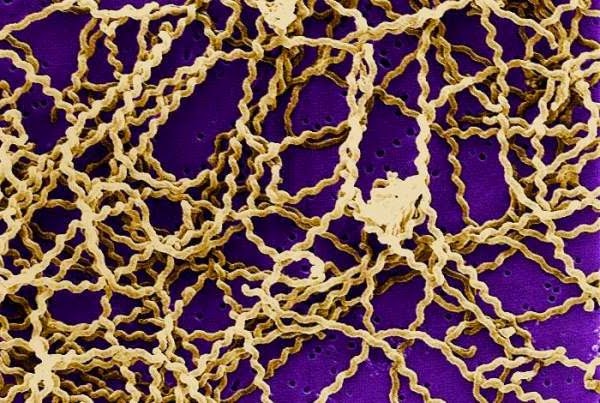
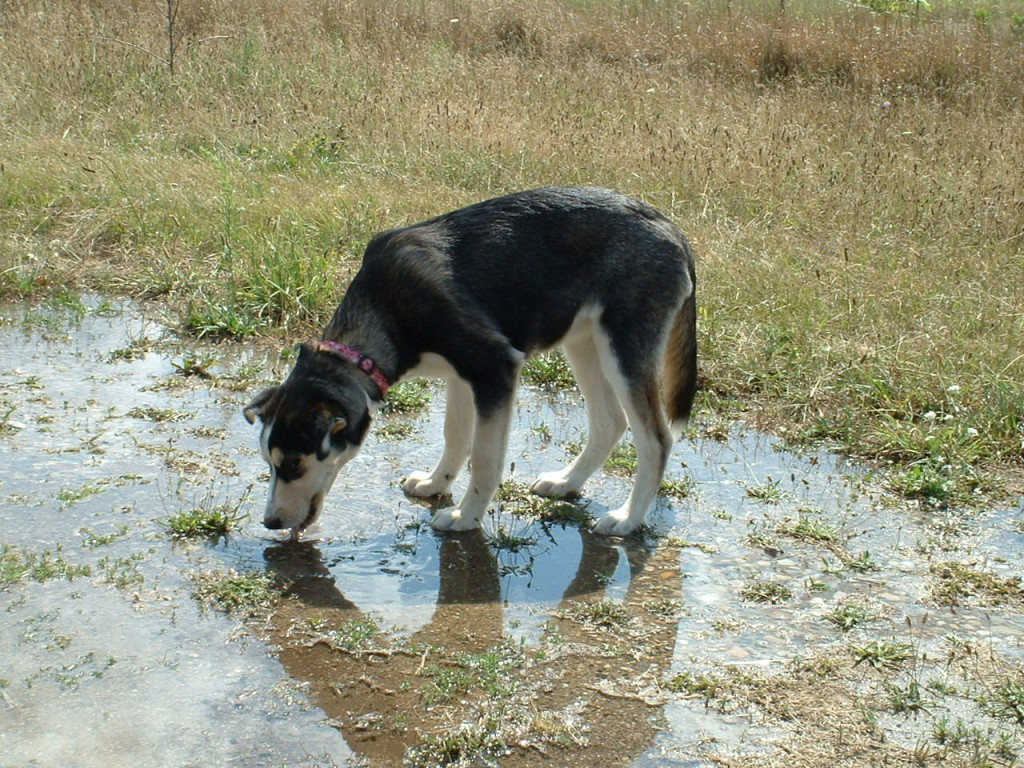
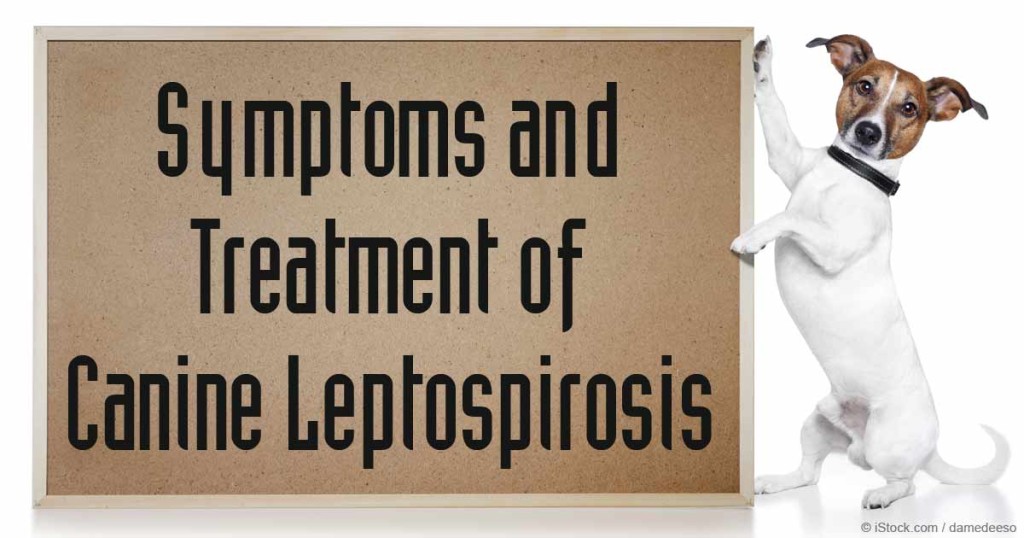
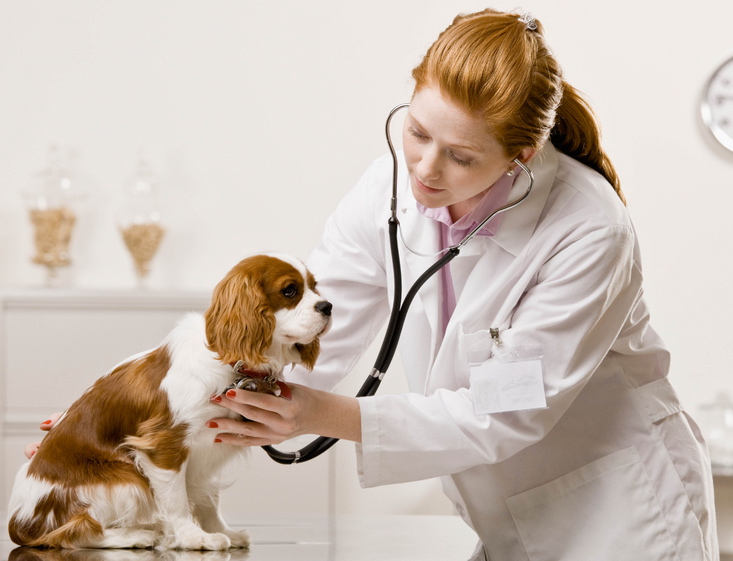
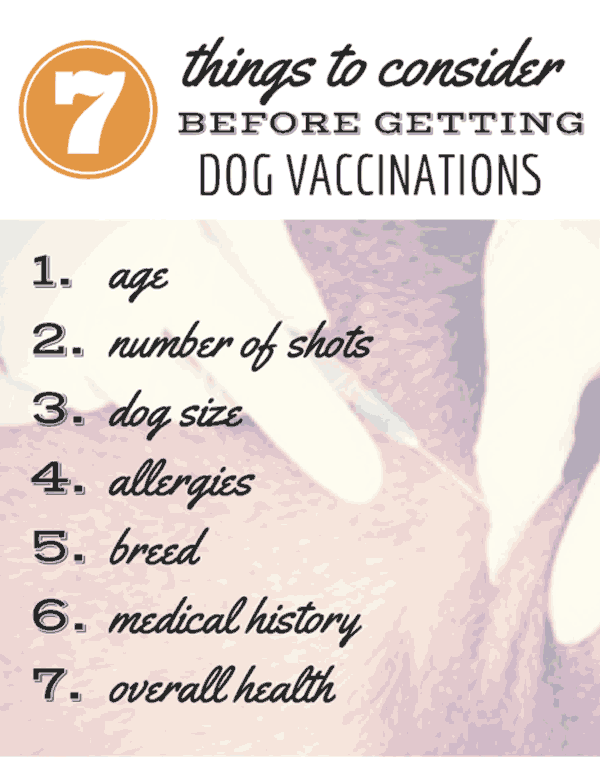



My puppy who was 12 weeks just died from Lepto. He was fine until I took him to the vet to get his Lepto shot. No symptoms. On the way home in the car he vomited. They are saying he must have been exposed before the shot. I am so confused. Why was there no systems until the shot? Would he have survived if he had not gotten the shot. How would you know if he had been exposed? He was only 12 weeks. I loved him so much. He was the best puppy ever, super smart and great temperment. I am in the same boat, I have huge vet bills to pay and my poor puppy did not even make it. Emergency vet service is expensive.
Melissa, I am so so sorry. How horrible. I think the only way to know is to have an independently done autopsy, so they can see what the cause of death was. I suggest independently done since you wouldn’t want the vet practice who gave your puppy the shot to also do the autopsy. Could be a conflict of interest. The very sad thing is that there are stories like yours; dogs who are fine until the shot or their second dose of the vaccine. I steer clear of all vaccines except rabies, and that’s because it’s illegal not to have that one. I’m not a vet, so I can’t advise you on anything veterinary in scope, but I can say you story isn’t the first. It doesn’t make it better or bring your puppy back, but please spread the word to others in your circles with dogs that this vaccine could be very dangerous to their dog. Again, my sincerest condolences, Melissa.
Five years ago, my four year old Wheaton Terrier, Sully, died from the leptospirosis vaccine. He was my rock. This is Sully’s story.
All 3 of my dogs had their annual vaccinations, including a lepto vaccine. My vet explained why they needed this lepto vaccine; lepto is deadly, it’s found in areas frequented by raccoons, possums, and rodents. I remember asking him why I should be concerned. I live in a very urban area. We might have a sewer rat or two, but that’s it. Plus, my dogs weren’t outside for extended periods of time, and I was a bit on the over protective side. As I listened, I started having that mommy guilt, thinking I would be neglecting my dogs if I didn’t do this. I agreed, and they received the vaccine. My vet said I should bring them back in 4 weeks for a second dose. My 2 other dogs were pretty old. We discussed it, and agreed it made more sense for Sully to receive the second dose, but not the other two due to their age. (Don’t ask me. I was just following his suggestions). Sully received the second dose four weeks later. Sully contracted leptospirosis within a month after receiving that second dose. After about 3 to 4 weeks, I could tell he wasn’t feeling very well. He had vomited a couple of times, was lethargic and just kinda not himself. This was on a Tuesday. I came home from work on Thursday, sat down, he slowly walked over and laid his head on my legs. I thought, he really doesn’t feel well. He must have some tummy thing going on. I need to get him to the vet. My regular vet was already closed, so I took him to the 24 hour vet/ER. We checked in, a tech came out to triage, I explained his symptoms, he pulled his eyelids back, picked him up and ran into the back. I was terrified. Sully’s eyes were dark yellow. I knew that meant something was going on with his liver. A few minutes later, the internal medicine doctor came out to talk to me. She explained his condition was serious. They were starting an IV and running tests. He was going to have to stay there. I was shocked. Once he was stable, I went back to see him. It was at that moment when I realized how sick he was. The doctor asked me a lot of questions. One of the first questions she asked was if he was recently vaccinated for lepto. I said yes, one dose approximately 8 weeks ago and a second dose 4 weeks ago. She sent blood work to be tested and began treatment for lepto in the meantime. The test results took up to 10 days.
As I said, this was on a Thursday. I was with him as much as possible the following days. I would snuggle with him inside his kennel. My kids came to see him. They made pictures and get well cards that were taped to his kennel. He just kept getting worse. I told the doctor that she would have to tell me if there was nothing more they could do, because I would take out a second mortgage on my house if I thought they could save him.
Monday morning she called me and said I needed to get there immediately. He was dying. I got there and they were getting ready to put him to sleep. He was on a surgical table. He was bleeding from his rectum. I collapsed over him, sobbing and yelling, NO, NO, NO. He struggled, and managed to open one eye. They administered the injection and he was gone. I couldn’t stop crying. The doctor was rubbing my back and I realized that everyone in the room was crying, including her. He died 6 days after he began showing any symptoms.
She said she wanted to send him to get an autopsy. I agreed. A few days later, the blood work she sent to be tested came back. He had leptospirosis, all 4 strains contained in the vaccine. My other 2 dogs, who lived in the exact same environment, were completely healthy. Coincidence? No way. He contracted the exact strains in the vaccine. He contracted leptospirosis from that second dose of the vaccine. This was confirmed by the autopsy. His case has been studied by two prominent universities who specialize in veterinary degrees. Literally out of the blue, Pfizer sent me a check for $15,000.00. I have another Wheaton, and I am so frustrated. Every vet I’ve talked with won’t believe me. They all tell me the vaccine is safe, and now, the leptospirosis vaccine is combined with the distemper, parvo, etc, vaccine. At least, that is what I have been told. I just don’t know what to do.
Pam, as I read Sully’s story, I too am crying. I am so so sorry for your terrible loss. The trouble is, like with our human doctors, we have no idea about veterinary medicine and put trust in those qualified to advise us on keeping our dogs the healthiest they can be. The lepto vaccine is administered to many dogs without incident. But, when it goes awry, it does so in a big way. What I do is I don’t vaccinate my dogs at all. Only rabies and that’s because it’s illegal not to. I haven’t given my dogs parvo/distemper ever. My oldest, Sophie, is 6. Like you, our dogs are watched over. Yes, they go on walks but mainly run in our backyard. I just think the vaccines do more harm than good, so I make that personal choice. I’m not recommending you do that; I’m not a vet. I’m just so so sorry this happened to poor Sully and to you and your family. I wish there was more I could do; tell you. Gerritt, in my article you read, never got the acknowledgement from the vets or the drug company on what happened to his dog. It was so sad and frustrating for him. Not sure what that Pfizer check is about, but it is incredibly weird to get no communication, just a check in the mail. If you’re looking for people who’ve been through it; I’m happy to connect you with Gerritt. Again, so so sorry for your loss.
Pam I know what you’re saying. We had the love of our lives in for his wellness exam and everything was top-notch.He received his exam and Lepo shot, he was taken back to the Vet 2days later put on IV and died 72hrs after the shot. The VET said he must have been sick when we bought him in funny he was. OK before the shot. We are so sorry for your loss. Remember Rainbow Bridge.
Robert, so so sorry for your loss. There are so many horrible stories related to this vaccine. My heart breaks that yours is one. Thank you for sharing it. Jody
The first time I took my basset to a new vet for his shots, he got the Lepto vaccination. He was maybe three at the time, and I’m guessing it was the L2 vaccination, not the L4? Within four hours of receiving it, his head and muzzle started swelling. It was after office hours by then, but his vet took my call and told me how much Benedryl to give him. By that point his head was so swollen the fur on it was standing straight up like a crew cut. I was frightened the swelling would affect his breathing. Fortunately it didn’t. I gave him Benadryl throughout the night and into the next day, and the swelling went down. He’s nine now and hasn’t had the lepto vaccination since. He gets the rabies and DHLPP vaccinations and never has any reactions to them. I switched vets not long after our lepto vaccination scare, and that vet says our state, Tennessee, has no reported cases of canine lepto so he doesn’t recommend vaccinating dogs against it here. I feel extremely lucky that a swollen head and muzzle was all that happened to my dog. It could have been much, much worse.
Thank goodness you were able to handle it, Ruby. It’s so hard to make the decision of whether to vaccinate or not. I think the best we can do for our dogs is to educate ourselves and ask a lot of questions of our vets. I’m so happy to hear your pup is ok. What an awful scare.
Since our beagle Cricket has had many vaccine reactions (none life threatening thank goodness), we are very cautious about vaccines (she doesn’t get any at all anymore). We no longer get any of the dogs Lepto since it is not common in our area, and we don’t hike or anything like that. I think it’s important for people to have this knowledge so they can make an informed decision with the help of their vet. Excellent post! I’ve written a whole series on vaccines but did not get this in depth on each individual one.
Thx Jan! I don’t get our dogs vaccinated. They never had a reaction to the rabies which I have to do, by law, but I just don’t like them because of the research I’ve done and my relationships with holistic vets. I hope this info gets out there so more dog parents will ask more questions of their vets.
Thank you for this information. I don’t give my dog any shots anymore. He gets very sick every time , only about I have to give is rabies by law. I have lost faith with the vets in my area . He is my kid and I can’t put him threw that.
I hear you, Nicole! Rabies is the only one I give my dogs, too, again because it’s the law. That’s why I think asking questions of your vet and maybe even getting a second or third opinion is a good idea, like we’d do for ourselves. Good on you for caring so much for your babies.
Very informative! We used to not give this vx to small dogs because of the reaction risk where I used to work. The vets questioned that choice after we had a chihuahua patient who we helped battle the disease. She ultimately did not live 🙁 I don’t think I’ve seen any dogs recover actually. It’s the only vaccine I get for my dog, except rabies because it’s the law. But, I live in an area where lepto incidences are high. Wild Rats and deer also carry it. We think the chihuahua patient got it from rats.
It’s such a hard decision to make, Ann. I’m talking to my vet now about the level of incidents in our area. I wonder if that Chihuahua would’ve lived given the vaccine, because of all the incidents of bad reactions by small dogs to it. The whole thing is super scary. At least if we know about it and our options, we can ask more informed questions, I think.
I definitely agree, Jody. Something pet parents need to make an informed decision on. She had several other chihuahuas in her home as well. She brought them all in for the lepto vaccine afterwards, and they were always vaccinated for it each year afterwards.
Thank goodness they were fine. I always get nervous when I bring Sophie, especially, in for any vaccine. She’s a bit of a fragile thing.
Oh wow, Jody this post is blowing my mind! I’m most shocked about the vaccination risk of Lepto. vaccines. I’ve been pondering getting the vaccine. We live primarily in Phoenix where Lepto isn’t a concern and most Veterinarians don’t feel it’s needed in our area. However, we spend a few months a year, especially in Summer, on Long Island NY. Our NY Vet has recommended the vaccination for the Long Island area. I actually intended to get the vaccinations this Summer but have not made the time. Now I’m torn! I think I need to have a full conversation with my Phoenix Vet and see what he recommends. Thanks so much for offering this perspective, please convey condolences to Donald on losing his beautiful Gracie Lou. I know there are Veterinarians who are now recommending no vaccinations for pets at all, including Rabies, even though it’s required by law in all 50 states (other than some w/ a medical exemption). I don’t like that particular idea. Thanks so much for sharing all this important information on Leptospirosis! I’m sharing.
So glad it was helpful, if just to open more conversation, Cathy. It’s the hardest thing, figuring out what’s best for our babies. Maybe also talk to a local vet on Long Island. I grew up on LI and there are different areas – coastal vs not – maybe part of your consideration is what vets are doing there and how high the incidence of it is in the area you’re going to. Thanks so much for sharing this post, too, Cathy. Really appreciate you spreading the word. I will def pass your condolences on to Donald. He’s such a lovely guy. So amazing how you meet total strangers from Facebook and they change your lives, perspective, etc.
Such a tragedy!My own knowledge of Leptospirosis is very limited. When I was in high school, one of our dogs died shortly after getting a vaccination. I always try to weigh the pros and cons when my vet brings up a new (to us) vaccination for my dogs. I also limit my dogs to only 2 vaccines in a visit, even if it means going back 3 weeks later.
It is really sad and I feel so much for what Gerritt is going through. I’m not a big believer in vaccinating. the only thing I allow the vet to give my dogs is rabies, and that’s because it’s illegal not to. I’m also a big supporter of titer testing. So often, vets try to sell booster shots or vaccines not really needed. With a titer test, you and your vet can tell if your dog still has enough antibodies to protect it and, therefore, forgo this booster and re test the titer the following year. With some vaccines, I’ve read the antibodies in the system lasts for years and years.
My JRT had a Lepto vaccination and got very, very ill. I took her back to vet who said she was probably allergic to the shot. But, a year later, they goofed and didn’t read her records and gave her another one. She was even more ill and I thought I’d lost her. Now they have a very large note on her folder and I continue to remind them that she is to get no more of this dangerous vaccination.
My heart aches for Gracie’s dad and family but can’t help but think he’s saved many others from going through the tragic story ending that he did.
Nancy, thanks so much for sharing this. I’m going to ask you to do something for JRT and all dog lovers and parents out there. Please share this story with your comments about your own experience on all of your social media with the hashtag #Lepto. It’s already a hashtag on Twitter. We need to make this a major conversation and get it to go viral so more people don’t lose their babies, either to the disease, which is treatable if detected early, or to this vaccine. Thank you in advance. I will pass your condolences on to Gerritt.